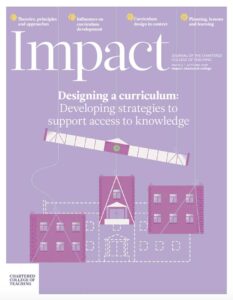In the summer of 2010, I spent three weeks in a kindergarten in New Zealand as part of the research for my doctoral thesis. I was there to gain an insight into Te Whāriki, the early childhood curriculum of New Zealand. At that time, early childhood education in England had been described as having a ‘schoolification’ agenda (OECD, 2006), or a ‘top down’ approach, in which formal teaching methods had been advocated for younger children (Wood and Bennett, 2006) as a way of ensuring that they were ‘ready for school’. My research in New Zealand aimed to explore how focusing on learning dispositions might provide an alternative means of preparation for school than early formal learning. My own experience is that I have encountered several children over the years who have struggled to access the formal learning that takes place when they start compulsory schooling, an issue shared by other practitioners (Sanders et al., 2005). I am not convinced that the solution is to provi
Join us or sign in now to view the rest of this page
You're viewing this site as a guest, which only allows you to view a limited amount of content.
To view this page and get access to all our resources, join the Chartered College of Teaching (it's free for trainee teachers and half price for ECTs) or log in if you're already a member.











